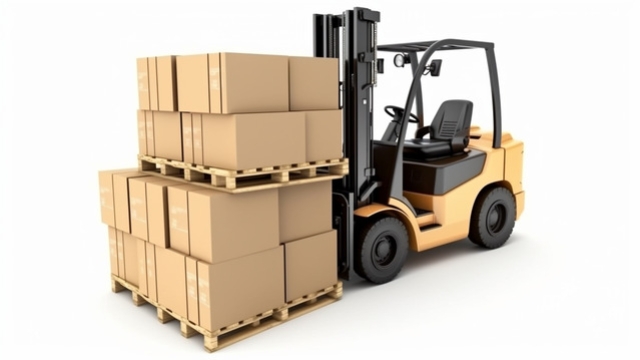
In today’s fast-paced industrial landscape, the demand for efficiency and safety in logistics has never been higher. As businesses seek to optimize their operations, forklift manufacturers are stepping up to the challenge by rolling out innovative features in new forklift models. These advancements not only enhance productivity but also address the growing concerns around safety and sustainability in the workplace.
From smart technology integration to ergonomic designs, the latest forklifts are equipped with cutting-edge features that can transform the way goods are handled. In this article, we will explore some of the most exciting innovations being introduced by leading forklift manufacturers, providing insights into how these developments can benefit businesses and operators alike. Whether you are a logistics manager or an industry enthusiast, understanding these advancements is crucial to staying ahead in the competitive world of material handling.
Emerging Technologies in Forklifts
The forklift industry is witnessing a significant transformation driven by innovative technologies that enhance efficiency and safety. One of the most impactful developments is the integration of automation and robotics. Automated guided vehicles, or AGVs, are increasingly being utilized in warehouses and manufacturing facilities, allowing for seamless material handling without the need for human intervention. These systems not only reduce labor costs but also minimize the risk of accidents, thereby improving overall operational safety.
Another exciting trend is the adoption of telematics in forklift design. Telematics systems provide real-time data on forklift operations, including performance metrics, maintenance needs, and location tracking. This technology enables operators and managers to make informed decisions, optimize fleets, and schedule maintenance proactively, which can significantly reduce downtime. By leveraging data analytics, forklift manufacturers are set to enhance their service offerings and provide more value to customers.
Furthermore, advancements in battery technology are transforming forklift operations. Lithium-ion batteries are becoming the preferred choice over traditional lead-acid batteries due to their higher efficiency, faster charging times, and longer lifespan. As manufacturers invest in these advanced energy solutions, they are not only promoting sustainability but also allowing for more flexible and productive operations. Forklift users can benefit from reduced operational costs and increased uptime, making this innovation a crucial aspect of modern material handling.
Enhanced Safety Features
In the ever-evolving world of material handling, safety remains a paramount concern for forklift manufacturers. New models come equipped with advanced safety systems designed to protect both operators and bystanders. Features like automatic braking systems, which engage when objects are detected in the path of the forklift, greatly reduce the risk of accidents. These innovations reflect the industry’s commitment to ensuring safer workplace environments.
Another significant advancement is the integration of stability systems that continuously monitor the forklift’s movements. These systems can alert operators if a load is off-balance or if the vehicle is tilting beyond safe limits. Such technology not only prevents tip-overs but also boosts operator confidence, allowing them to perform their tasks more efficiently. Manufacturers are increasingly focusing on these aspects to meet regulatory requirements and address safety concerns proactively.
Moreover, modern forklifts are now being fitted with enhanced visibility features, including LED lighting and camera systems. These improvements provide operators with better awareness of their surroundings, minimizing blind spots and facilitating safer navigation in crowded warehouses. By prioritizing visibility, forklift manufacturers are playing a crucial role in reducing the likelihood of collisions and enhancing overall operational safety.
Sustainability and Efficiency Innovations
In recent years, forklift manufacturers have made significant strides in integrating sustainability into their designs and operations. With increasing global awareness of environmental impact, many companies are prioritizing eco-friendly materials and energy-efficient systems in their forklift models. This includes the use of lightweight components made from recyclable materials, significantly reducing the overall carbon footprint of production processes. Additionally, manufacturers are focusing on electric and hybrid options to minimize reliance on fossil fuels, aligning their products with the growing demand for greener logistics solutions.
Another innovation driving efficiency in new forklift models is the incorporation of advanced technology. The use of automation and smart sensors has transformed traditional machinery into smart forklifts that can optimize battery usage, improve operational safety, and enhance performance monitoring. These technologies enable real-time data collection, allowing operators to make informed decisions that boost productivity while also conserving energy. Forklift manufacturers are now leveraging these capabilities to create models that not only perform better but also contribute to reduced operational costs over time.
Meenyon Electric Reach Truck
Finally, sustainability extends beyond the forklifts themselves to how they are utilized in warehouses and distribution centers. Forklift manufacturers are collaborating with businesses to develop integrated systems that optimize entire supply chain operations. This includes energy management solutions that synchronize forklift operations with warehouse energy consumption patterns, further enhancing efficiency. By innovating at multiple levels—from the design of the forklift to its application in various settings—manufacturers are ensuring that their products not only meet current market demands but also contribute to a more sustainable future in material handling.


